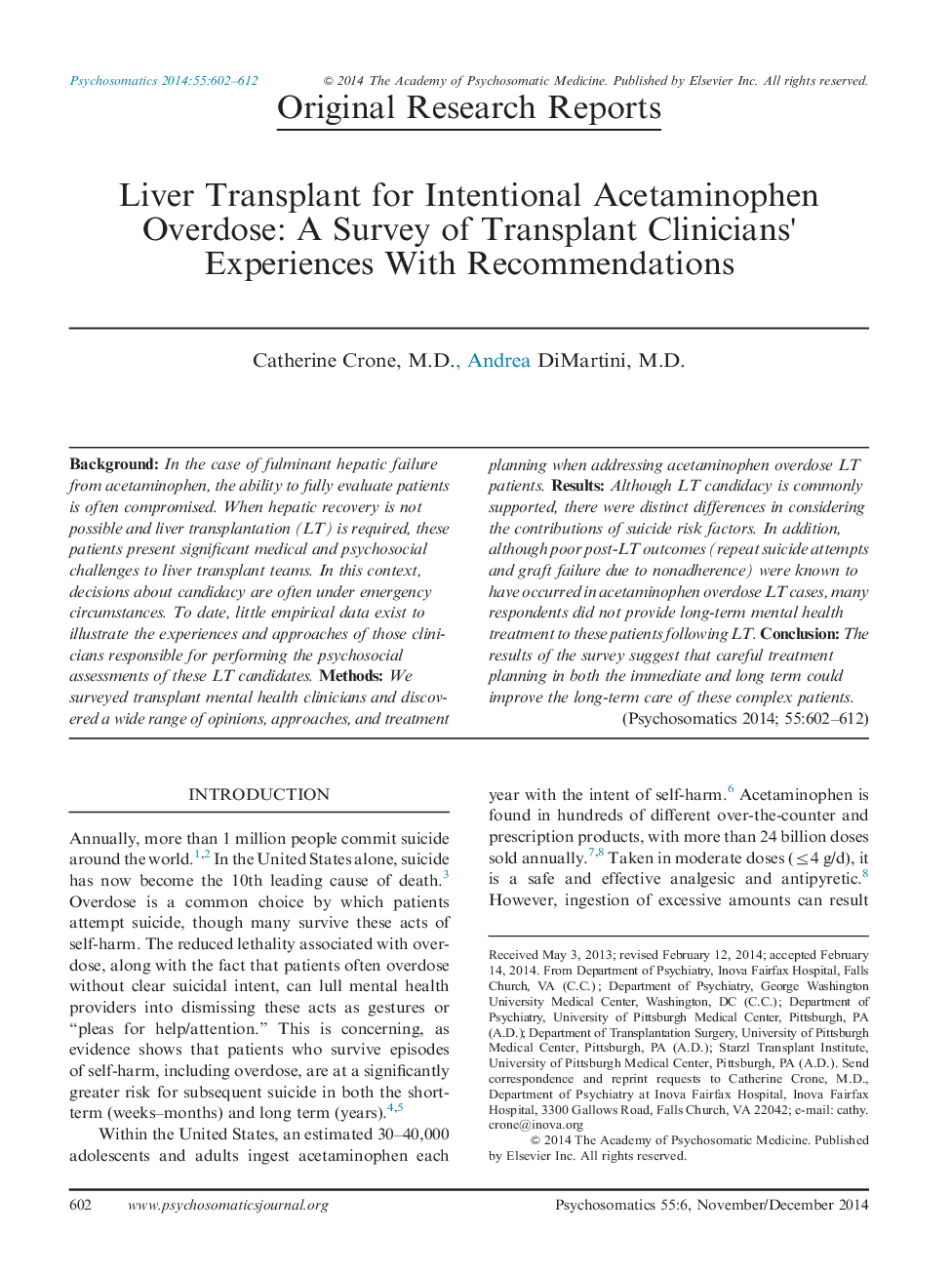| Article ID | Journal | Published Year | Pages | File Type |
|---|---|---|---|---|
| 337474 | Psychosomatics | 2014 | 11 Pages |
BackgroundIn the case of fulminant hepatic failure from acetaminophen, the ability to fully evaluate patients is often compromised. When hepatic recovery is not possible and liver transplantation (LT) is required, these patients present significant medical and psychosocial challenges to liver transplant teams. In this context, decisions about candidacy are often under emergency circumstances. To date, little empirical data exist to illustrate the experiences and approaches of those clinicians responsible for performing the psychosocial assessments of these LT candidates.MethodsWe surveyed transplant mental health clinicians and discovered a wide range of opinions, approaches, and treatment planning when addressing acetaminophen overdose LT patients.ResultsAlthough LT candidacy is commonly supported, there were distinct differences in considering the contributions of suicide risk factors. In addition, although poor post-LT outcomes (repeat suicide attempts and graft failure due to nonadherence) were known to have occurred in acetaminophen overdose LT cases, many respondents did not provide long-term mental health treatment to these patients following LT.ConclusionThe results of the survey suggest that careful treatment planning in both the immediate and long term could improve the long-term care of these complex patients.
